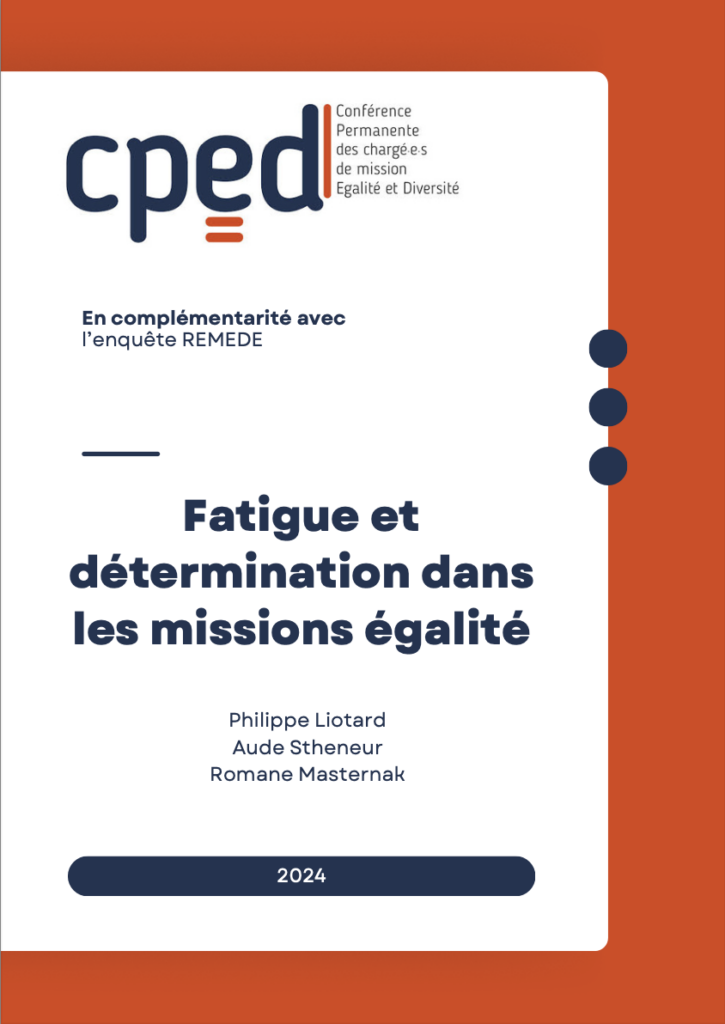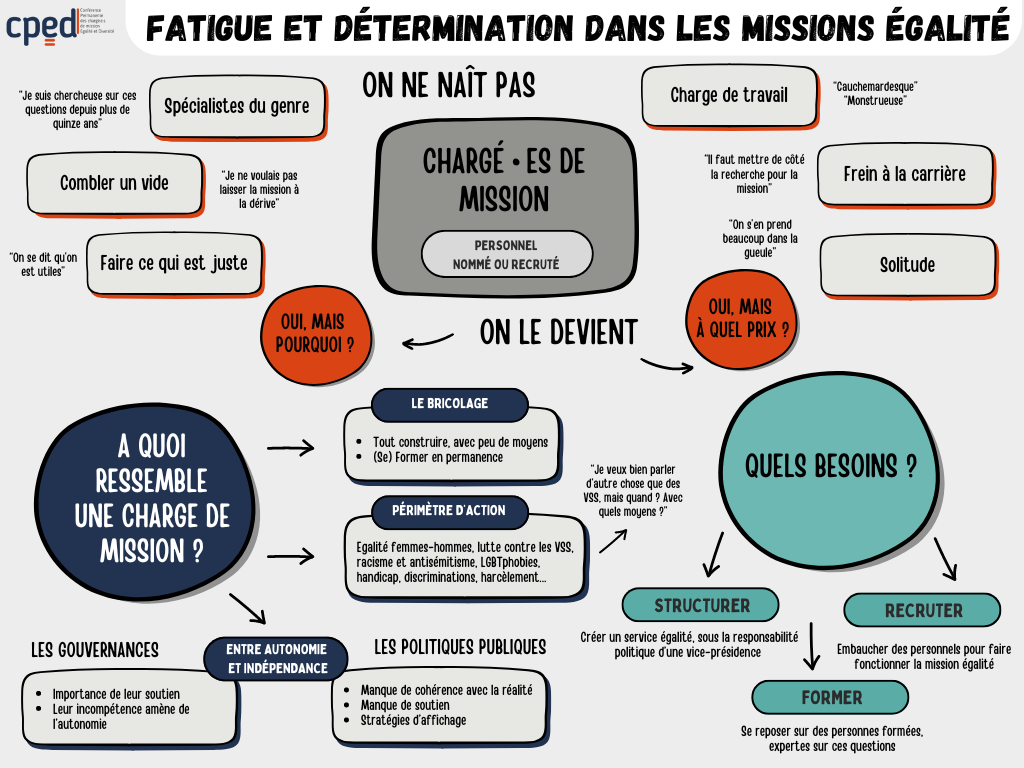Within CPED, many of the comments we receive reflect difficulties in carrying out our various missions. In 2019, the Perimeters and Resources survey conducted by CPED had already shown that the majority of open comments betrayed a negative feelings about the working conditions of the people in charge of these missions. Thus, in order to capture the realities of those in charge of equality with relevance and nuance, we felt it essential - in addition to the REMÈDE survey - to use qualitative interviews. We therefore issued a call for interviews in parallel with the questionnaire survey distributed to all establishments. These interviews provided an opportunity for in-depth discussion of the organization and operation of our missions and programs, to gain a better understanding of the local issues at stake, and to gather the views of those in charge of equality in higher education and research.
Eighteen interviews were conducted with people from seventeen different establishments (fourteen universities and three grandes écoles). These institutions ranged from those with less than two hundred students to large universities with well over 50,000 students, following mergers.
Click on the image to view or download the document.

The comments gathered attest first of all to theoften unconditional commitment equality officers and support staff. This mission is meaningful and corresponds to strong values. However, they are also expressing a form of disillusion and saturation. In the end, the feeling was rather negative and some people appeared to be in vulnerable situations, both institutionally and professionally, and sometimes even in their relationships. contradictory injunctions We are faced with the challenge of responding to legitimate demands for action to promote equality and combat violence and discrimination, while finding ourselves unable to do so to the extent required, due to a lack of resources, room for manoeuvre and even confidence.
The people we interviewed spoke of recurring difficulties, and revealed what can only be described as a form of suffering at work, linked to isolation, work overload, lack of consideration... Yet they are not in a position to give up. What emerges from the interviews is that they are proposing improvements at both local and national levels, based on their clear understanding of what is holding back their work.
Their ability to make proposals is undeniable.
Their desire to implement public policies in favor of equality is indisputable.
Their experience of the mission was nevertheless uncomfortable.

